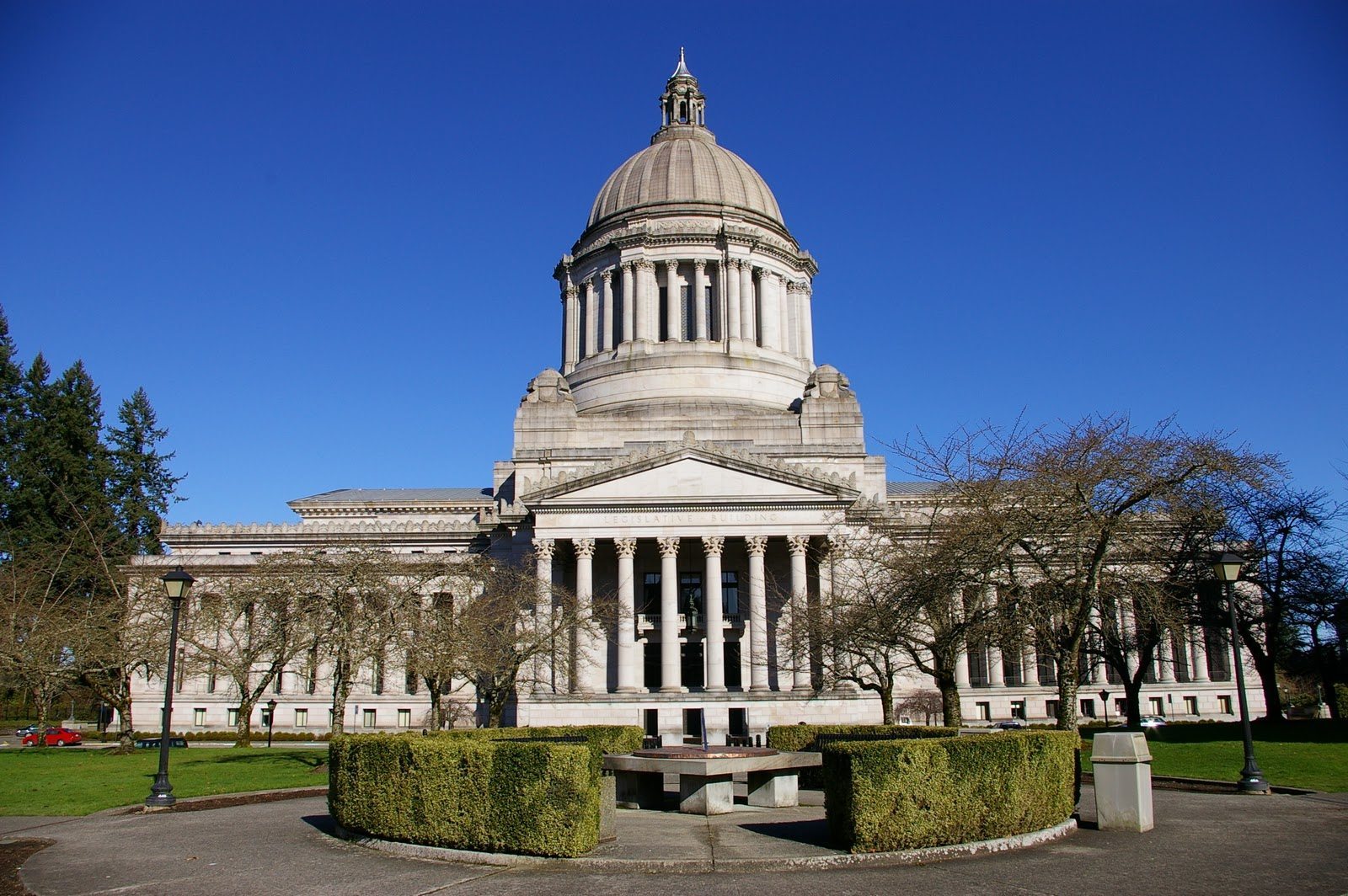The member unions of the Washington State Labor Council (WSLC) — the state’s AFL-CIO affiliate—have released their “Shared Prosperity Agenda,” an outline of big labor’s legislative priorities in 2015. As Shift reported, the WSLC had been signaling that, due a lack of success is jamming through its special interest agenda in the last session, its 2015 plan would follow a similar path as its 2013-14 predecessor. Today, we learned that it does just that.
This Throw Back Thursday, we are taking a look at how big labor plans to lobby the Legislature on issues almost identical to the previous years. The WSLC broke down its 2015 agenda into two portions, “Rebuilding the Middle Class” and “Creating Secure and Stable Jobs”—both grossly misleading title choices considering the policy implications of its priorities.
The first portion claims to rebuild the middle class by, among other agenda items, increasing the statewide minimum wage and instituting mandatory paid sick leave for private employers. The WSLC stops short of calling for a $15 minimum wage, though big labor worked to implement the unsustainable wage level in both SeaTac and Seattle. The statewide plan appears to remain a $12 per hour minimum wage to be phased in over the next two years. It should be noted that Washington State already has the highest minimum wage in the nation, and that as of January 1, the state minimum wage rose to $9.47 per hour as a result of Initiative 688—an initiative paid for a decade ago by labor that ties the state’s minimum wage to the Consumer Price Index.
The WSLC lobbied also for a bill that would require private employers to provide paid sick leave in 2014. Big labor plans on pushing the bill again this year. This agenda item has become a popular method for scoring political points across the country. However, studies prove that “paid sick leave mandates come with notable side effects and comparatively few benefits.” The majority of financially flexible employers already provide paid sick leave for employees. It’s the small businesses with little financial flexibility that struggle to deal with the associated costs either by “raising prices on customers and decreasing employee pay and benefits.”
On particularly aggressive member, the Service Employees International Union (SEIU) 775, appears to be leading the WSLC push for these two priorities. The union scheduled a “sign-on” event for legislators at the State Capitol today. According to SEIU 775, key legislators will have the opportunity to invite colleagues to co-sponsor their bills to raise the minimum wage and establish a minimum standard for paid sick days.
Perhaps the most hypocritical part of the WSLC’s “Creating Secure and Stable Jobs” plan is the “invest in education” section. The WSLC would be more truthful admitting that invest in education really means invest in its member union, the Washington Education Association (WEA). The WEA managed to narrowly pass the grab for money and power that is Initiative 1351—the so-called class size initiative that, strangely enough, primarily benefits the WEA—by using false promotion tactics. As Shift reported, I-1351 reveals big labor’s true priorities, since the initiative is not about benefitting students. It’s all about increasing union dues and gaining control of the Legislature’s purse strings. Through I-1351, WEA seeks to cut in the legislative funding line, and not wait its turn for salary (and dues) money.
Ironically, the WSLC also calls for investing more in higher education—a fact that cements big labor’s “invest in education” priority as disingenuous. If the WSLC truly cared about higher education, it would denounce Jay Inslee’s plan to use public universities as a cash cow to pay for state employee pay hikes—but, of course, it has not and will not.
The WSLC wraps up its Shared Prosperity Agenda by noting that, in addition to the outlined plan, it will “support a range of issues that address income inequality, economic opportunity, and tax fairness, as well as legislation championed by our affiliated unions.” If the events of the 2014 legislative cycle are any indication, that means supporting quite a lot of “legislation championed by our affiliated unions” that seeks to further damage the very agenda items it claims to back.
As Shift reported, due to the lobbying efforts of WEA, key Democrat state senators backed out of an agreement that would have secured control of $40 million in needed federal funds to local school districts. With the McCleary decision in the background, school districts across the state felt the impact of losing control of $40 million—funds typically allocated to helping low income students achieve success through after-school help. Revealing the WEA’s out-of-touch position on education funding in our state, a union representative told lawmakers that they should not worry about the possible loss of control over $40 million because school districts have a “huge amount of money.”
Randy Dorn, state superintendent of public instruction, summarized the controversy perfectly when he said, “Unfortunately the teacher’s union felt it was more important to protect their members than agree to that change and pressured the Legislature not to act.” That doesn’t sound like big labor is all too intent on the notion of investing in education.
As Shift pointed out, big labor’s 2015 priorities match-up quite nicely with Jay Inslee’s priorities as outlined by his budget plan. Inslee even re-enforced big labor’s agenda during his State of the State address to a joint session of the state House and Senate on Tuesday. Using the same language as the WSLC, Inslee spoke of a “slow erosion of our shared prosperity” to describe his own plans. Of course, that should come as no surprise considering the millions of dollars big labor pumped into Inslee’s 2012 gubernatorial bid. Inslee isn’t a politician who shies away from generously rewarding his biggest campaign donors—that much is crystal clear.




